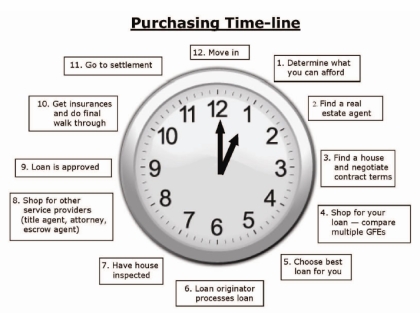The rule for buying real estate long ago was “caveat emptor,” meaning “buyer beware.” Consumer protection has been one of the primary priorities for both state and federal governments. Despite our governments’ best efforts to protect us, liars and cheats have not yet all repented, so . . . the rule of caveat emptor is not dead, certainly not to be ignored by a buyer of real estate.

As we enter the new year, we have some new major consumer protection activity regarding disclosures to consumers when buying a home and obtaining a loan. The Real Estate Settlement Practices Act (RESPA) has been upgraded, so to speak. Under the new rules, all lenders and closers must adhere to the new Good Faith Estimate (GFE) and HUD-1 Settlement Statement which is intended to simplify the disclosure of loan fees and closing costs and allow consumers to shop around for the best deal. I think more important to consumers than shopping around for the best deal is a little fundamental concept many consumers have called, “old fashioned honesty by lenders.”
HUD recently released a great guide: Shopping For Your Home Loan: HUD’s Settlement Cost Booklet. Loan originators are required to provide consumers with the booklet within three days of a loan application. The booklet provides a basic overview of the home buying and mortgage lending process. It also explains in detail each part of the new Good Faith Estimate and the new HUD-1 Settlement Statement.
Frankly, I was impressed by this guide. Whoever drafted it actually understands real estate, the mortgage market, escrow, and how real estate agents work. The guide has some excellent consumer protection advice, such as this:
Frequently, the first person you consult about buying a home is a real estate agent or broker. Although these agents and brokers provide helpful advice, they may legally be representing the interests of the seller and not yours. . . It is your responsibility to search for an agent who will represent your interests in the real estate transaction. If you want someone to represent only your interests, consider hiring an “exclusive buyer’s agent”, who will be working for you.
A word of caution bolstered by personal opinion: The reform to RESPA requires that certain documents be given to consumers, including disclosures drafted by attorneys who spent months plying their trade, and mathematics regarding fees and costs associated with the loan and closing costs. All this is good, but my opinion is that we don’t have a panacea here. We have more paperwork that consumers are supposed to read . . . and understand? I applaud the feds and their well drafted RESPA reform. It’s all good. But two thoughts occur to me. First, does anyone really think consumers will be better protected by giving them more legalese to read? Consumers are already swamped with disclosures of all kinds and mandatory consumer protection warning labels everywhere! It appears that the burden of watching one’s backside falls upon the consumer again, hence the phrase “caveat emptor” at the beginning of this article. Second, don’t expect this new law and guide to transform the less-than-honest loan reps into Priests. They are still prowling about seeking whom they may devour. What they are doing right now is working on a new strategy to steal money from you.
Having said that, I do recommend that you review this HUD guide. I am a strong advocate of consumer protection, and my small part in this Universe to help protect consumers is education with helpful articles and the latest in news and helpful tips on this blog. I realized long ago I don’t have the power to save the world, but I can help one client at a time, and I do that as a Sequim Buyer’s Agent and a Port Angeles Buyer’s Agent. My job is not only to help my clients find and negotiate the best possible deal on their retirement home, but to help protect them all the way through closing.
The image above is from this guide, and you can see how nicely it lays out the buying process in a simple graphic. You’ll find the guide at RESPA HUD Settlement Cost Booklet.
Last Updated on June 2, 2015 by Chuck Marunde





























